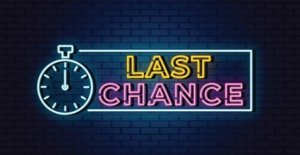So, About that Employee Who Gets Vaccinated AFTER Being Removed
By Deborah Hopkins, October 20, 2021
 In the previous article, Bill Wiley shared the logical process for agencies to use progressive discipline when a Federal employee refuses to be vaccinated and doesn’t qualify for a legal exemption.
In the previous article, Bill Wiley shared the logical process for agencies to use progressive discipline when a Federal employee refuses to be vaccinated and doesn’t qualify for a legal exemption.
There are a couple of other scenarios also worth addressing, as it’s likely they will occur in at least a few agencies. We’ll begin where the employee has received a notice of proposed removal for refusing to be vaccinated.
Scenario A: At the response to a proposed removal, the employee:
- Says she was vaccinated after the proposal, or
- Says she will get vaccinated if she’s permitted to keep her job.
OPM and the CHCO Council recently issued enforcement guidance that suggested the discipline should “end” if after the proposal notice the employee provides the agency with appropriate documentation that the employee is now fully vaccinated.
If the employee has only received one dose of a 2-dose vaccine, the guidance suggests the agency should “hold any disciplinary action in abeyance pending receipt of appropriate documentation that the employee has received the second dose within the designated 3- or 4-week interval depending on the vaccine received by the employee, even if this means the employee will not be fully vaccinated until after November 22, 2021.”
Under Scenario A.2, though, here’s another thought: The DO could offer the employee a Last Chance Agreement and include a requirement that she provide proof of the first vaccine dose within 5 days (any of the FDA-approved or emergency use authorized vaccines), and proof of a second dose (if applicable) within 21 (Pfizer/BioNTech) or 28 (Moderna) days, depending on the vaccine received. According to the guidance, the employee would need to provide documentation of full vaccination status within 5 weeks.
If the employee does not show proof of full vaccination by the end of that time period, the agency could then remove the employee under the LCA. As a bonus, other parameters written in to the LCA could also allow the agency to remove the employee for any misconduct or less than fully successful performance over the next two years.
Scenario B: The employee is removed, files an MSPB appeal, and gets vaccinated before his MSPB hearing.
In this scenario, the main question for the agency is whether MSPB is likely to uphold the removal since the employee’s condition has changed. Indeed, the nominees for MSPB were asked about this very scenario during their committee hearing on September 22, and demurred on answering this specific question.
There are countless MSPB cases where the Board has upheld discipline for employee insubordination, failure to follow orders, and related charges. See, e.g., Phillips v. General Services Administration, 878 F.2d 370 (Fed. Cir. 1989); Gallagher v. Department of Labor, 11 MSPR 612 (1982); Parbs v. USPS, 2007 MSPB 302 Lentine v. Treasury, 94 MSPR 676 (2003).
And of course, in light of Executive Order 14043, most of us are now familiar with a case where the Federal Circuit upheld an agency’s decision to remove two employees who refused an anthrax vaccine mandate. The Federal Circuit agreed the agency had authority to require vaccines because such action was necessary and appropriate to protect the health of the employees. Mazares, Jr. v. Navy, 302 F.3d 1382 (Fed. Cir. 2002). The MSPB had also affirmed the removal in that case.
The answer on whether removal will be upheld may seem clear. However, remember that MSPB is allowed to mitigate an agency’s penalty if it finds the penalty is outside the bounds of reasonableness. See Payne v. USPS, 72 MSPR 646 (1996). Will the incoming MSPB find a removal is too harsh for an employee who initially refused, but eventually got vaccinated? Doubtful, but possible.
One other fun thought: There are a few cases where MSPB has reinstated a removed employee whose situation has changed, but those tend to deal with non-disciplinary medical inability to perform removals. MSPB has such cases, where an employee’s medical condition improves and the employee is medically able to work again, as easy to resolve because it would be “manifest absurdity” not to reinstate an employee who was removed for non-disciplinary medical reasons beyond their control. In such cases the appellant must produce evidence of a) full recovery b) prior to the close of the record before the Administrative Judge. See, e.g., Street v. Army, 23 MSPR 335 (1984); Hodges v. DoJ, 2014 MSPB 54. How this would work, if it would work at all, with a two-step vaccine mandate with a government-wide date certain, nobody knows.
FELTG suggestion: Rather than force the issue to litigation, the agency could settle with the employee and offer a reprimand in lieu of a 14-day suspension, if the employee was valuable to the agency and it would benefit the agency to bring the employee back.
Join FELTG November 3 for the brand new virtual event The Exemption Proves the Rule: Reasonable Accommodation, Discipline, and the Vaccine Mandate where we discuss all these matters, and more. Hopkins@FELTG.com
